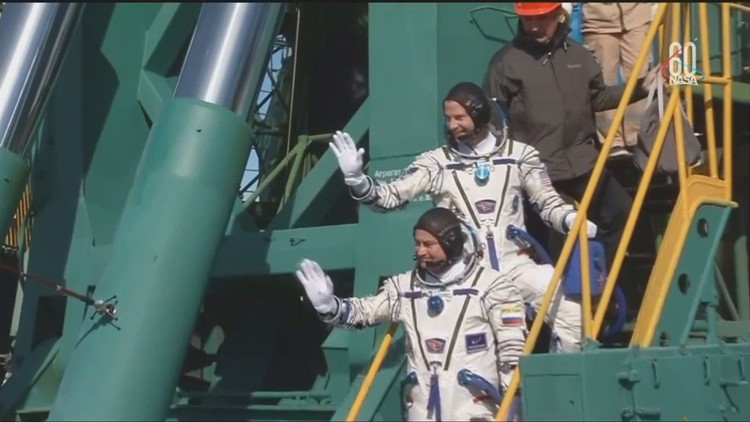BOULDER — When U.S. Astronaut Nick Hague and his Russian partner boarded their Soyuz Rocket, they had no idea that what was about to happen would be felt in Boulder.
"Anytime something goes wrong in space, you feel it," explained Phil Larson. "It will have a reverberating impact throughout the industry."
Larson is the Assistant Dean of the College of Engineering and Applied Science at the University of Colorado in Boulder. He is also a former scientist at SpaceX and served as a space and innovation advisor for President Barack Obama.
He said as the rocket approached the edge of space, something unprecedented happened.
"About two minutes into the flight, so they were pretty high up, something malfunctioned with the rocket booster cause the spacecraft to separate," Larson said.
The emergency protocols caused the two passengers to abort and sent them plummeting back down to Earth in what NASA calls a "ballistic descent" up to seven times the force of gravity.
"Just like a fighter pilot has the eject seat, this was kind of ejecting the spacecraft from the rocket," Larson said.
Hague and Cosmonaut Alexy Ovchinin made it safely back to the ground. Larson said this event can have an impact on efforts here in Colorado to send Americans back into space on American rockets.
"Today's kind of successful accident shows the importance of gaining that capability back here and having multiple forms of getting into space," Larson said.
Hague and Ovchinin were reunited with family. Hague is originally from Kansas, but he did graduate from the Air Force Academy in Colorado Springs.
"While this was a bad day," Ovchinin said. "It was kind of a good-bad day. The rocket malfunctioned, but the abort systems in place actually worked."



